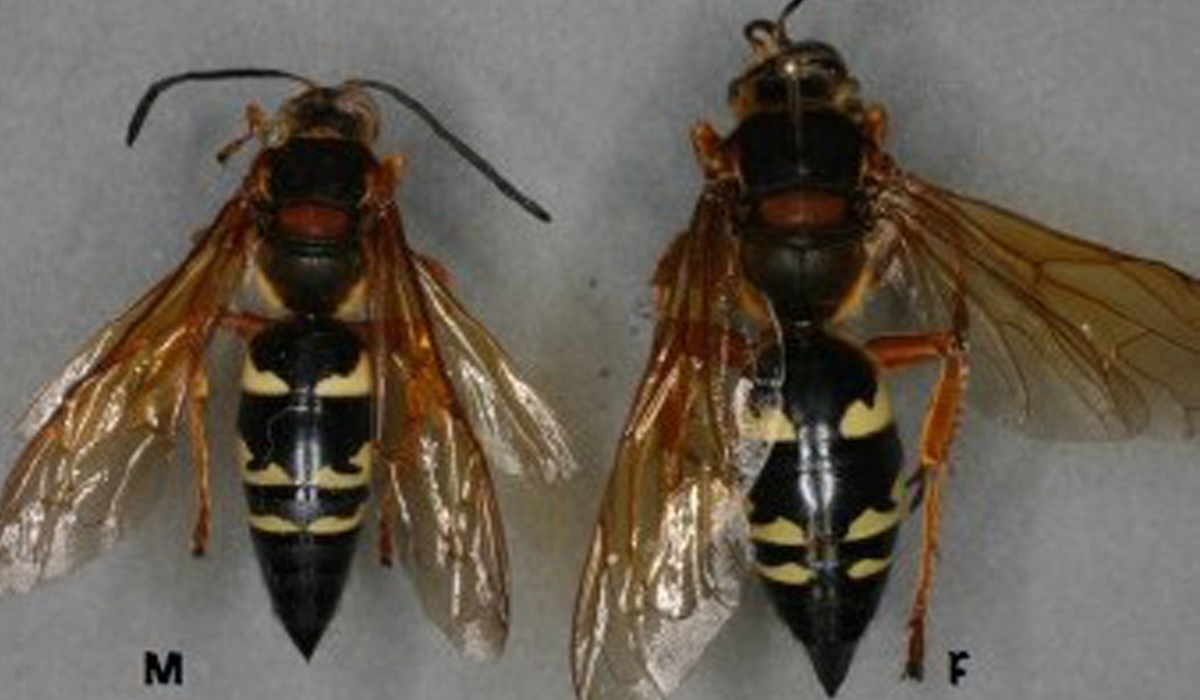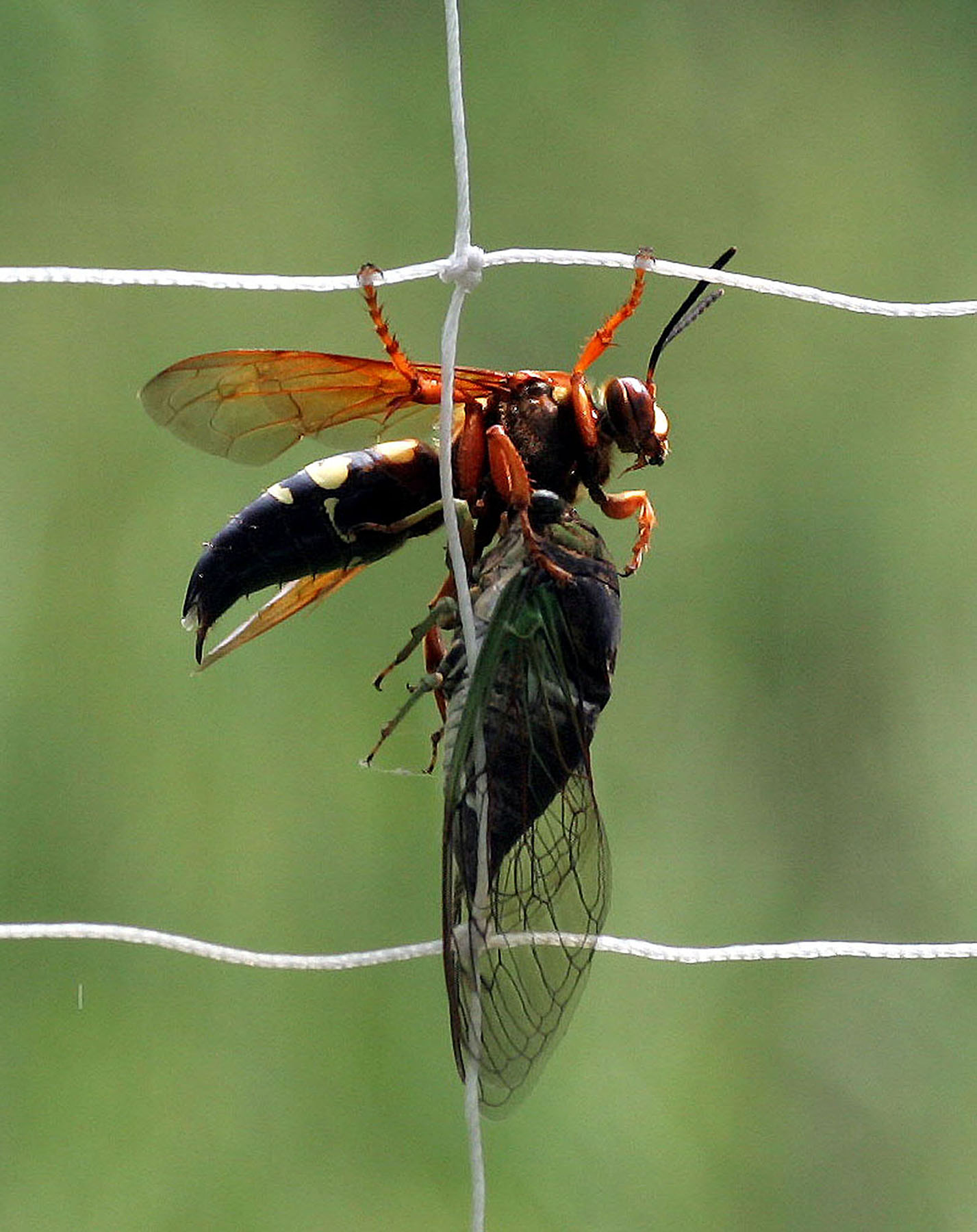
You’re probably heard of cicadas, the buzzing swarms of noisy insects that emerge each summer. But what about their predators, the cicada killers—colossal digging wasps with sizable jaws and an appetite solely for cicadas?
With a name like “cicada killer,” you might suspect that these insects would be particularly brutal, and you’d be right. The large wasps, which are technically named Sphecius speciosus and measure nearly 2 inches long, have a particularly intense hunting strategy. Like other parasitoid wasps, they use the insects as living incubators for their young.
Shortly after hatching, female wasps dig elaborate burrows beneath the soil to house their nests. Then, they actively seek out cicadas in trees and among tall shrubs. Once discovered, it’s “game over” for the cicada — the killer paralyzes it with one swift sting.
The killer then attempts to fly the helpless cicada back to its own burrow, but the insect is dead weight, sometimes two to three times the size of the killer. Unable to fly with the extra cargo in tow, the tenacious wasp grasps firmly onto the cicada and instead climbs trees to leap from limbs and glide toward its burrow. The affair takes multiple attempts over a full day.

Once finally back at its burrow, the killer places the paralyzed (but very much alive) cicada into one of its many brooding chambers roughly 10 to 20 inches underground. The female lays its eggs close to the cicada’s puncture wound for easy access, then seals the chamber with dirt, entombing the poor doomed creature.
One to two days later, the egg hatches and the larva begins to devour the helpless cicada, entering through the open wound. Once it’s had its fill, it will spin a cocoon to begin the transformation into an adult wasp.
Once they make it to adulthood, their lifespan is short. Cicada killers emerge in July or August and usually die out by September. And while their breeding strategy might seem ruthless, they have to contend with their own predators too, including carpenter bees and velvet ants.
While they are often mistaken for hornets, the wasps are generally uninterested humans, instead reserving their sting for paralyzing prey — so there’s no need to worry if you run into one. What’s more, these guys keep the cicada population in check, which is beneficial to the trees and shrubs in your yard.




